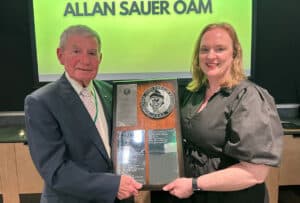
By Wendy Knowlton
4 February 2022
If the words, “based on the story by…” inspire trepidation, Station Eleven may not be for you. This 10-part series deviates significantly from Emily St. John Mandel’s novel of a devastating pandemic that wipes out 99.9 per cent of the world’s population. Too-faithful adaptations often prove uninspiring, but taking liberties is a risky business. Some of the changes pay off here, but others may leave fans with a sense of loss.
On the eve of the disaster, famed film actor, Arthur Leander (Gael Garcia Bernal) dies during a performance of King Lear. All of the series’ main characters are connected to Arthur in some way – his first and second wives Miranda and Elizabeth, his son Tyler, his best friend Clark, child actress Kirsten, and Jeevan, who rushes onto the stage to assist when Arthur collapses. Their post-pandemic lives intertwine as each search for a sense of home and purpose in a fragmented world.
“I don’t want to live the wrong life, and then die” says Arthur. This acts as a refrain for survivors. Twenty years on, Kirsten (Mackenzie Davis) is part of The Travelling Symphony, a group of players who follow a yearly route bringing Shakespeare to isolated settlements. For them, “Survival is insufficient”. As they embrace the words of a man who wrote in a time of plague, they endeavour to do more than stay alive. On an atmospherically candlelit stage, in costumes cobbled together from items such as old golfing gloves and zippers, the actors capture the hunger those who remain have, to preserve the best of “before”.
Competing with this desire is the corrosive effect of trauma. As the internet winked out and electricity grids failed, chaos succeeded order and strangers became objects of fear. Young Kirsten (Matilda Lawler) etches knife tattoos into her arm to commemorate her kills and Tyler (Daniel Zovatto) leads children in a crusade against the adult world he feels has betrayed him.
This is an intriguing and thought-provoking series full of fine performances and memorable visual moments. While some may object to the inconsistent Tyler, the harshly re-imagined Clark, or the dark transformation of the Severn City Airport and its Museum of Civilization, the significance remains of Miranda’s tightly-held graphic novel retained from the before-time, as does the terrible fascination of a world half reclaimed by nature, with empty houses standing as time capsules to what was.
The novel celebrated the richness of art and relationships, but the darker series dwells more on guilt and damage. However, the Travelling Symphony’s route becomes a motif. Everything circles around, and nothing is truly lost. Mandel’s characters may meet without realising their connection, or don’t cross paths, but the series is determined to bring all together. This lacks subtlety, but it does bring a sense of satisfaction. Both works end on a similar note, capturing the spirit of hope as people venture over the horizon into a new world. But audiences may prefer one journey over the other.
Station Eleven is available on Stan. Rated M- coarse language, themes violence






